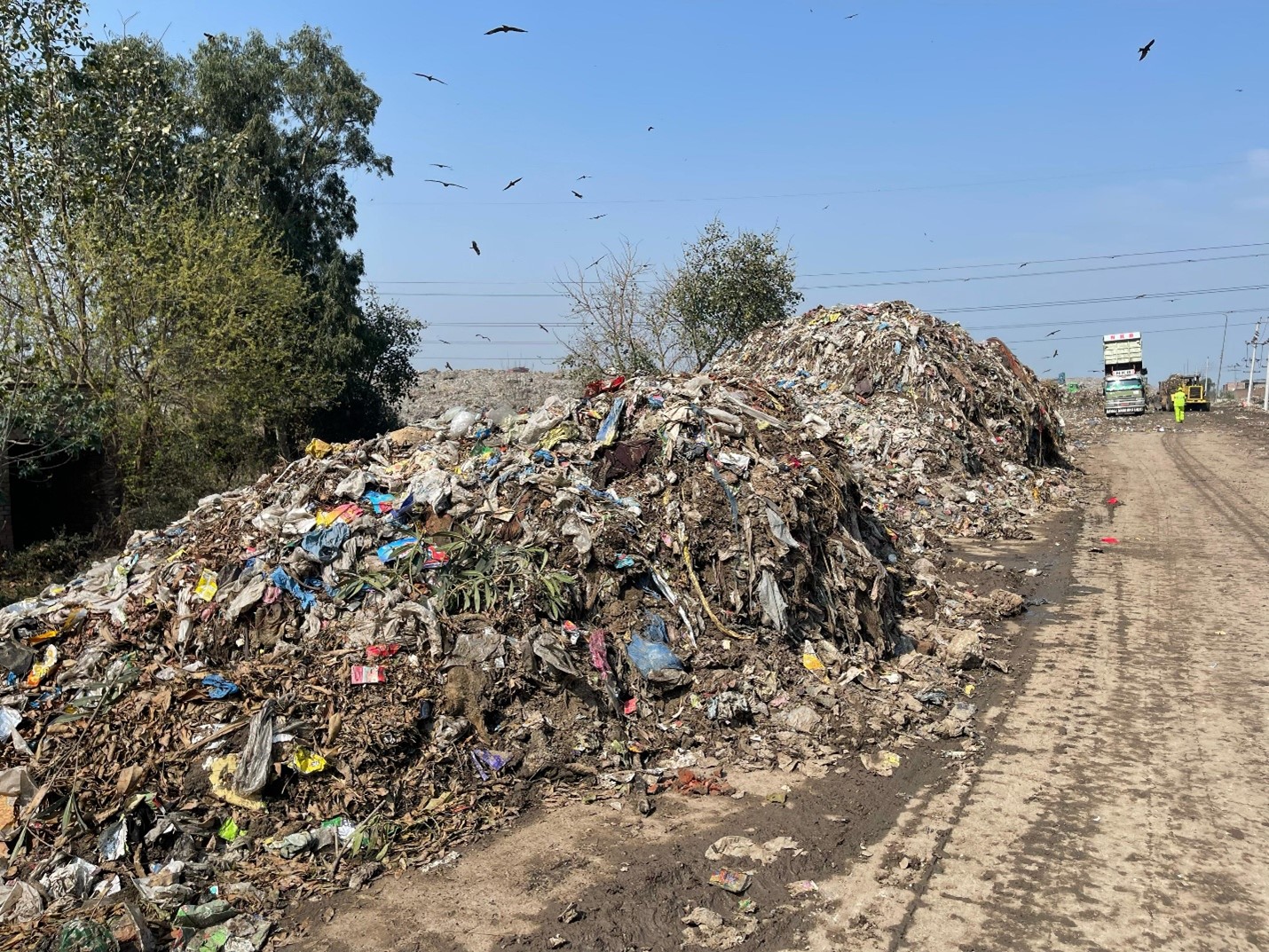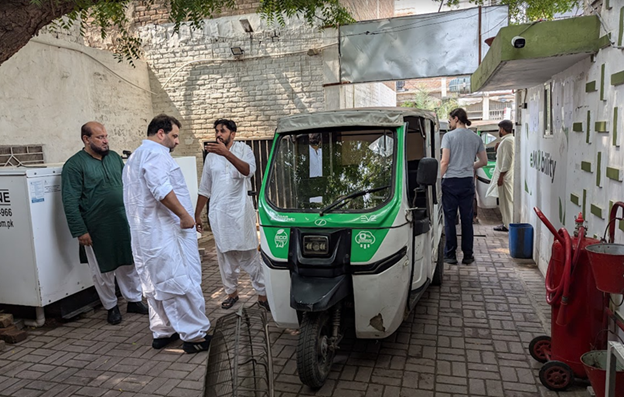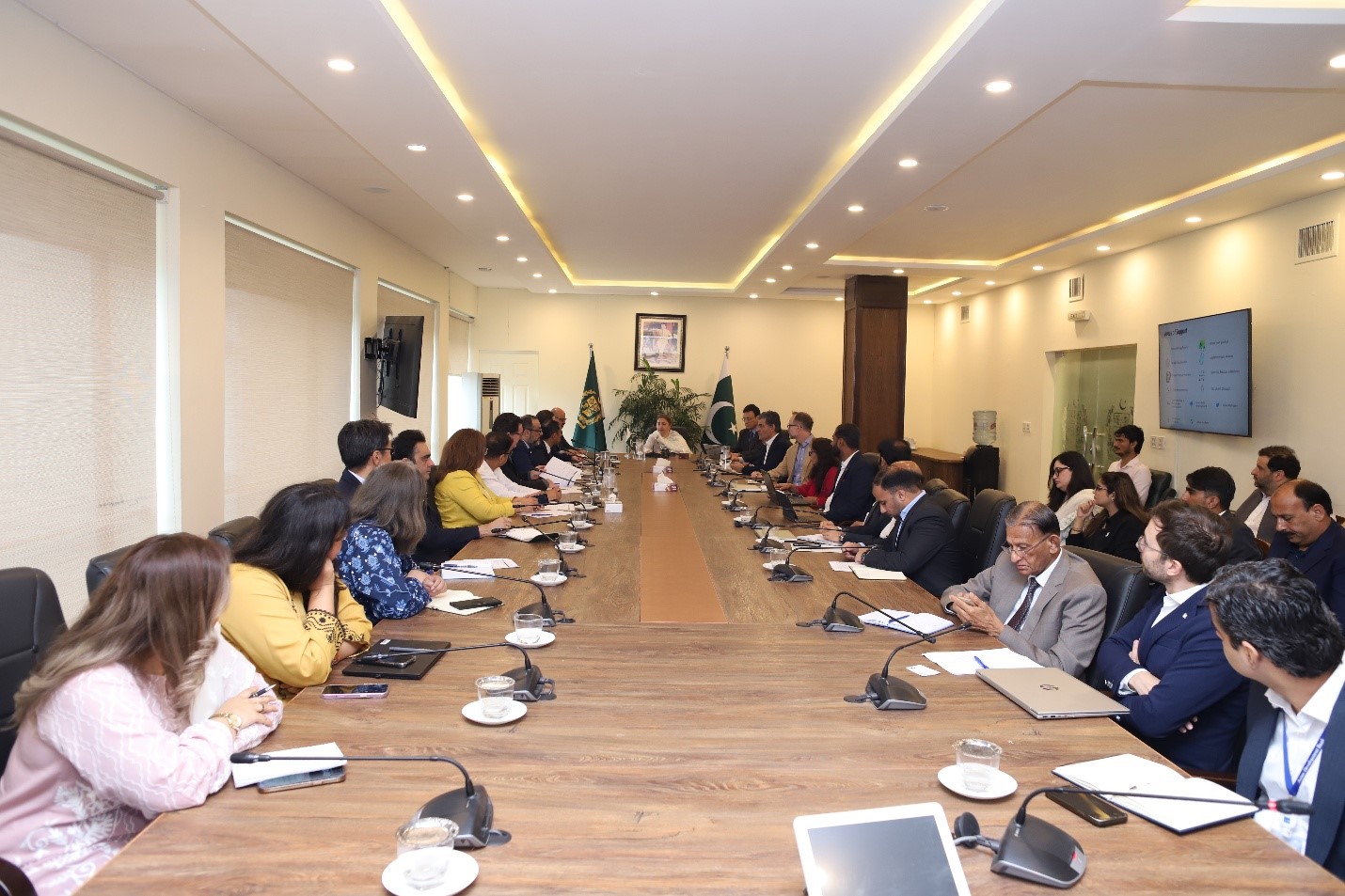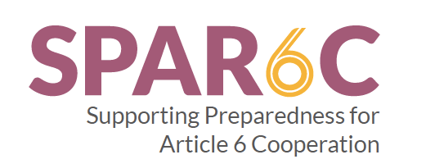Advancing Pakistan’s preparedness for cooperative approaches under Article 6 of the Paris Agreement, the UNEP Copenhagen Climate Centre (UNEP-CCC) conducted a strategic mission under the Supporting Preparedness for Article 6 Cooperation (SPAR6C) programme. Over the course of engagements in Islamabad, Lahore, Multan, and Karachi, the mission worked closely with federal and provincial governments, the private sector, and development partners to translate policy frameworks into actionable pathways for carbon market participation.
The visit prioritized integration of SPAR6C’s technical work with the National Carbon Market Policy, mobilization of stakeholders for the upcoming NDC 3.0, and acceleration of pilot mitigation activities in sectors such as waste, transport, and cement. These efforts are aimed at building the institutional and market infrastructure needed to strategize high-integrity climate finance for Pakistan’s low-carbon transition.
High-Level Engagements in Islamabad
In Islamabad, the delegation met with Senator Dr. Musadik Malik, Federal Minister for Climate Change and Environmental Coordination, and Ms. Aisha Humera Chaudhry, Federal Secretary of the Ministry. Discussions focused on integrating SPAR6C workstreams with evolving national policy priorities, accelerating Pakistan’s readiness for cooperative approaches under Article 6, and developing a strong pipeline of market-eligible mitigation activities.

Senator Dr. Musadik Malik emphasized the importance of long-term impact, noting, “We need projects that are not only sustainable but continue to deliver environmental and community benefits long after completion.”
The UNEP-CCC team further provided technical support to mobilize government, development partners, and private-sector stakeholders in the drafting process for Pakistan’s updated Nationally Determined Contribution (NDC 3.0).
Provincial Engagements in Lahore
In Lahore, the delegation met with the Secretary of the Environment Protection and Climate Change Department, Government of Punjab, to explore avenues for provincial engagement in Pakistan’s emerging carbon market framework. The discussions underscored the importance of aligning provincial actions with national climate policies, building technical capacity, and ensuring that subnational stakeholders are actively involved in Article 6 implementation.

At the Lahore Waste Management Company (LWMC), the mission team reviewed the Mitigation Activity Design Document (MADD) for the Lakhodair Landfill Project—Pakistan’s first government-to-government carbon market pilot under Article 6. The project aims to capture methane emissions, improve public health, and contribute to Pakistan’s Nationally Determined Contribution targets.
Technical Site Visit in Multan
The UNEP-CCC officials conducted a dedicated site visit to assess potential synergies between the Neubolt E3W electric rickshaw project and SPAR6C’s pipeline of mitigation activities. The visit explored opportunities for integrating electric mobility into Pakistan’s carbon market framework, with a focus on emission reduction potential, private-sector engagement, and climate finance mobilization.

National Dialogue on NDC 3.0
A high-level Donor Coordination Roundtable was co-hosted by UNEP-CCC, UNDP Pakistan, and MoCC&EC to align development partner support with Pakistan’s forthcoming NDC 3.0. The roundtable brought together multilateral development banks, UN agencies, bilateral partners, and private-sector representatives. Discussions centred on sectoral target-setting, alignment of donor pipelines with bankable mitigation investments, and strategies for leveraging climate finance at scale.

Capacity Building Workshop in Karachi
The mission concluded with a Carbon Market Training Workshop for public and private-sector stakeholders, held on 17 July 2025. The workshop gathered 121 participants, with over 50% representation from the private sector, to examine readiness for cooperative approaches under Article 6. Sessions covered sector-specific mitigation opportunities, financing models, and the role of financial institutions in enabling climate-aligned investments.
The mission underscored SPAR6C’s pivotal role in strengthening Pakistan’s readiness for cooperative approaches under Article 6. By advancing high-integrity pilot projects, enhancing institutional and policy frameworks, and fostering collaboration between federal, provincial, and private sector stakeholders, SPAR6C continues to build the technical, regulatory, and market foundations needed for Pakistan to access climate finance at scale and meet its long-term decarbonization goals.
